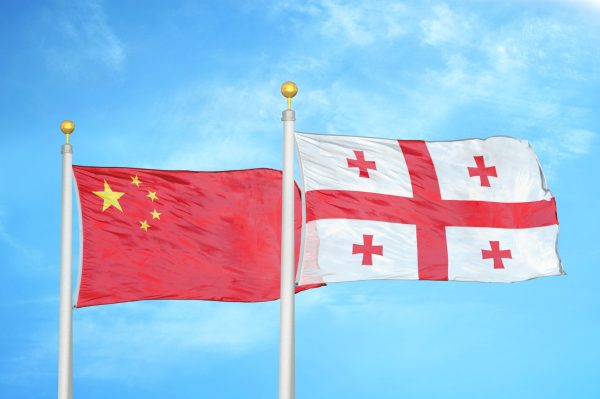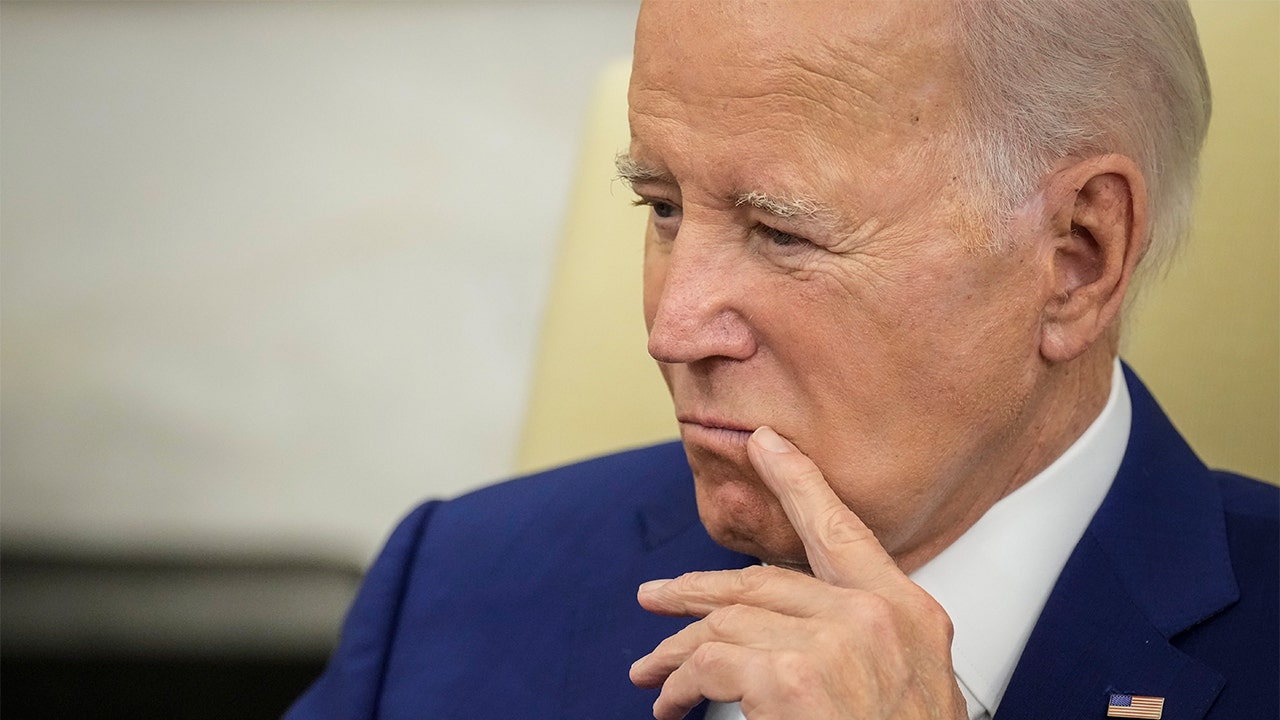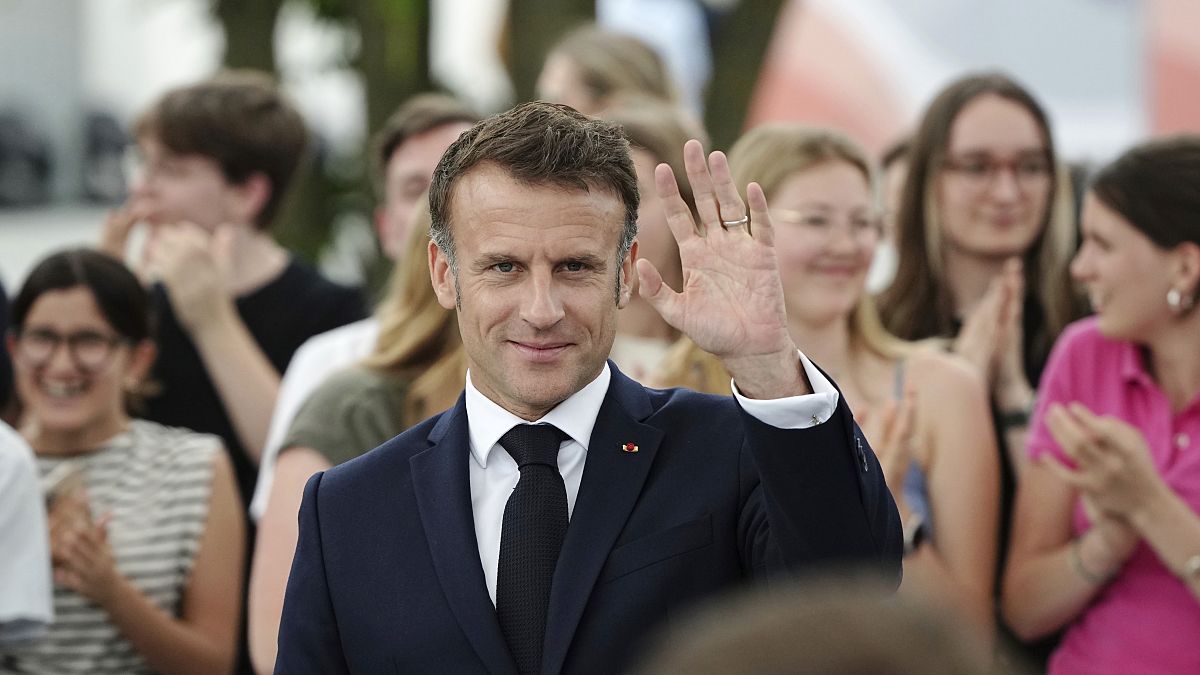World
Chinese rivals pose 'existential threat' to Europe's solar industry
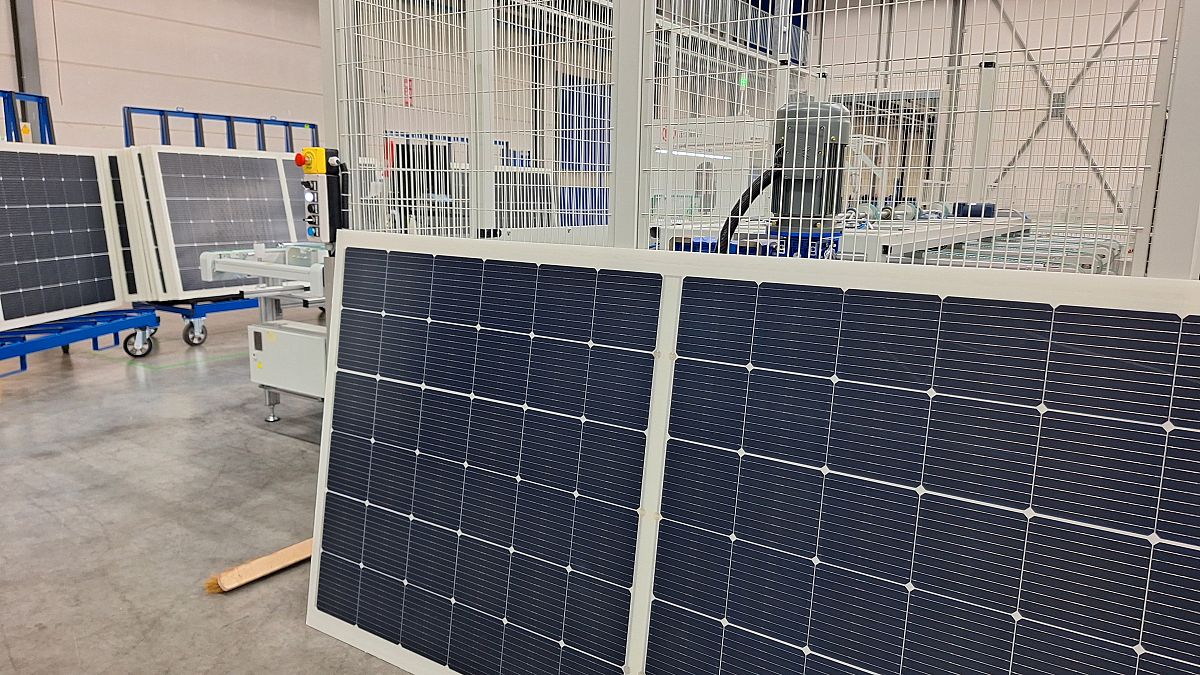
Cheap Chinese solar panels are flooding the EU market and threatening the viability of homegrown companies.
Europe’s solar industry warns it faces an “existential threat” and that unless action is taken soon, it could collapse in a matter of months.
An industry group is calling on the European Commission to introduce emergency measures, for example by stocking up on solar panels to ensure liquidity.
They say the influx of China-made solar panels, whose price is artificially lowered through generous state aid, into the EU market is to blame for the critical situation. According to the industry, Beijing has a near monopoly in the field: “China has been subsidising its industry for more than a decade,” says Johan Lindahl, secretary general of the European Solar Manufacturing Council (ESMC).
“They decided to consider photovoltaic (PV) a strategic technology more than fifteen years ago. They have done the same in other areas such as electric vehicles and batteries,” Lindahl added.
Low prices have led companies such as Switzerland’s Meyer Burger, formerly the largest solar manufacturer in Germany, to relocateto the United States and benefit from Joe Biden’s Inflation Reduction Ac. Other firms, such as Solarwatt, have dismissed staff to cut down production costs.
Innovation is key
A solar module produced in China is about 50% cheaper than its European equivalent. The quality, experts say, is nevertheless comparable. The industry has therefore no choice but to innovate if it wants to survive.
Solarge, a factory in the Netherlands, produces solar panels that are lighter than traditional ones and can be installed on roofs that cannot sustain much weight.
But even with a growth strategy, the situation could become untenable, says Gerard de Leede, Solarge’s CTO and co-founder. “If it takes a year or two, many companies, and of course us, will definitely see impact,” he told Euronews. “We will have to lower our prices and we will be less competitive and less profitable.”
Currently, solar panels manufactured in Europe account for only 3% of the market. However, SolarPower Europe believes that this could rise to 40% by 2030.
The Chinese impact not only endangers companies but also hampers the bloc’s industrial autonomy. The EU is close to approving the Net-Zero Industry Act to slash red tape and ramp up domestic production of renewable systems, like solar panels, wind turbines and electric batteries. The Act was hastily designed in response to the Inflation Reduction Act but, unlike the American initiative, it does not envision tax credits and rebates.
A separate regulation aims to ban the sale in the EU of products made with forced labour, which would prohibit many goods manufactured in parts of China.
Clash with climate targets
The goal of competing against low-cost Chinese solar panels might soon clash with the long-term climate targets introduced by the bloc, which will require a massive deployment of renewable systems to completely do away with fossil fuels.
Speaking before the European Parliament in early February, Mairead McGuinness, the European Commissioner for financial services, dampened the industry’s hopes for tariffs on cheap imports, insisting that “any potential measures must be weighed against the goals we have set for the energy transition.”
For Dries Acke, policy director at SolarPower Europe, it is “important that the solar market in Europe continues to grow.” But, he warns, “any industrial strategy for manufacturing has to make sure that it does not negatively affect the continued growth of European solar markets.”
This balance is essential for the EU. Solar energy is one of the cheapest and easiest to install, so rapid deployment can make a difference in meeting climate targets. By 2030, 42.5% of all EU energy will have to come from renewable sources.

World
Mavs rookie center Dereck Lively II leaves Game 3 of West finals after taking knee to head
DALLAS (AP) — Dallas Mavericks center Dereck Lively II left Game 3 of the Western Conference finals against Minnesota on Sunday night after getting hit in the back of the head by a knee from Karl-Anthony Towns.
The Mavericks said Lively was questionable to return with a sprained neck. The accidental contact caused his head to snap forward.
The rookie from Duke stayed on the court holding his head and was down for several minutes before appearing dazed as he was helped off the court and taken to the locker room.
Lively fell as Mike Conley was driving for a missed shot, and Towns was pursuing an offensive rebound when his knee hit Lively’s head in the second quarter.
The 20-year-old Lively and starting center Daniel Gafford played a big role in helping Dallas take a 2-0 lead in the series. Lively was 12 of 12 from the field in the series, including three makes in Game 3, when he was injured.
___
AP NBA: https://apnews.com/hub/NBA
World
Israeli airstrike on Rafah kills 2 top Hamas commanders, dozens of civilians
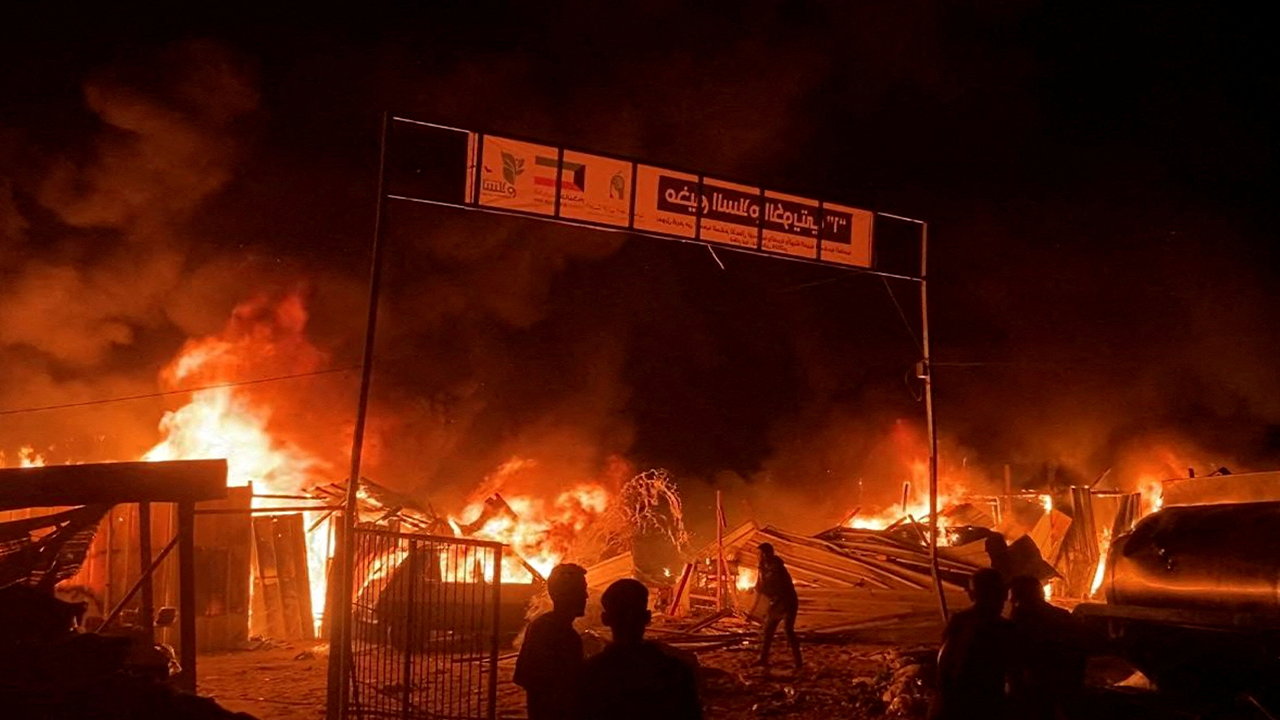
An Israeli airstrike on a Hamas compound in the Gazan city of Rafah has killed two top Hamas officials as well as dozens of civilians.
While the exact number of killed remains unclear at this time, the Israel Defense Forces (IDF) confirmed that it struck a Hamas compound in Rafah in which “significant Hamas terrorists were operating.”
The IDF, citing intelligence that it said indicated Hamas’ use of the area, said it carried out the strike “against legitimate targets under international law.”
Fire rages after an Israeli strike on an area designated for displaced Palestinians amid the ongoing conflict between Israel and Hamas in the Gazan city of Rafah on May 26, 2024. (Reuters/Reuters TV TPX Images of the Day)
IDF sources told Fox News Digital the strike eliminated Yassin Rabia, the commander of Hamas’ leadership in Judea and Samaria, as well as Khaled Nagar, a senior official in Hamas’ Judea and Samaria wing.
The IDF said that both men had perpetrated numerous terrorist attacks in the early 2000s in which Israeli civilians and soldiers were killed.
The IDF acknowledged reports that “several civilians in the area were harmed” from the airstrike and a subsequent fire. It said the incident is “under review.”
HAMAS LAUNCHES ROCKET BARRAGE INTO ISRAEL FROM RAFAH, SOUNDING ALARMS IN TEL AVIV
Palestinian health and civil emergency service officials, meanwhile, say the airstrike killed at least 35 Palestinians and wounded dozens more.
A spokesperson for the Palestinian Red Crescent Society said the death toll is likely to rise as search and rescue efforts continue in Rafah’s Tal al-Sultan neighborhood, more than a mile northwest of the city center.
The Red Crescent Society said Israel had designated the location a “humanitarian area.” The neighborhood is not included in areas that Israel’s military ordered evacuated this month.
Footage from the scene showed heavy destruction.
The airstrike was reported hours after Hamas fired a barrage of rockets from Gaza that set off air raid sirens as far away as Tel Aviv.
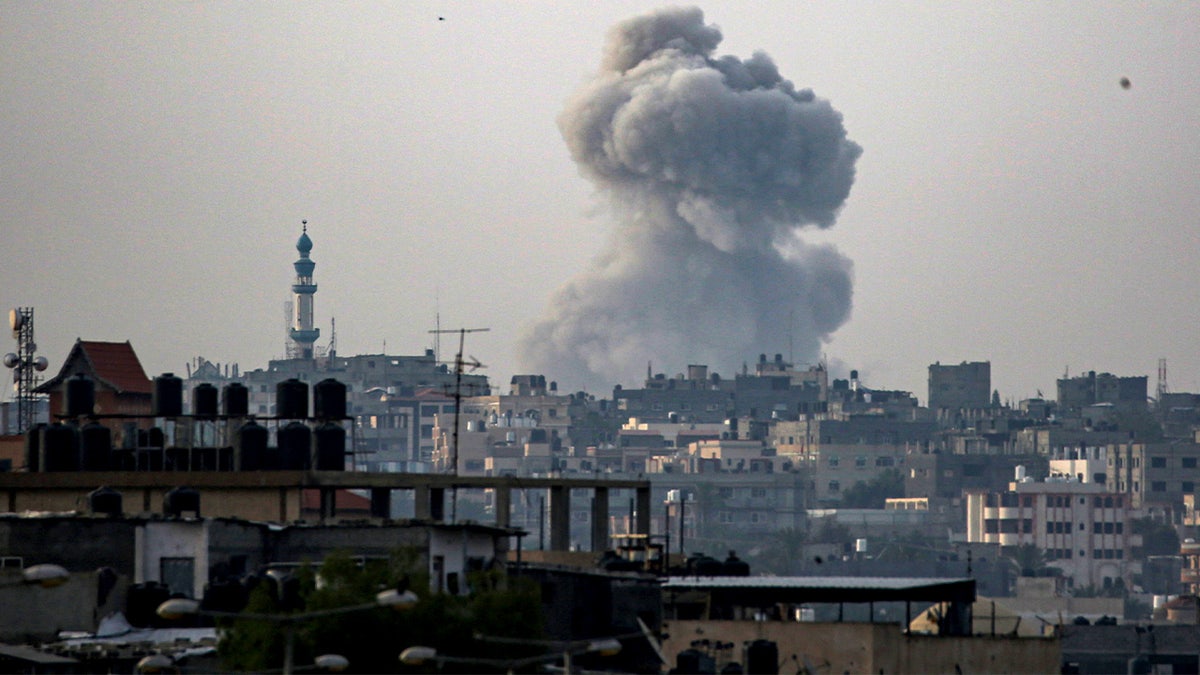
Smoke billows during Israeli bombardment in eastern Rafah in the southern Gaza Strip on May 19, 2024, amid the ongoing conflict between Israel and the Palestinian militant group Hamas. (AFP via Getty Images)
There were no immediate reports of casualties in what appeared to be the first long-range rocket attack from Gaza since January. Hamas’ military wing claimed responsibility. Israel’s military said eight projectiles crossed into Israel after being launched from Rafah and “a number” were intercepted and the launcher was destroyed.
PRESIDENT OF UN’S TOP COURT HAS LONG HISTORY OF ANTI-ISRAEL BIAS: ‘CONFLICT OF INTEREST’
The war between Israel and Hamas has killed nearly 36,000 Palestinians, according to Gaza’s Health Ministry, which does not distinguish between civilians and fighters in its count. Israel blames civilian deaths on Hamas because the militants operate in dense, residential areas.
Around 80% of Gaza’s 2.3 million people have fled their homes, severe hunger is widespread and U.N. officials say parts of the territory are experiencing famine.
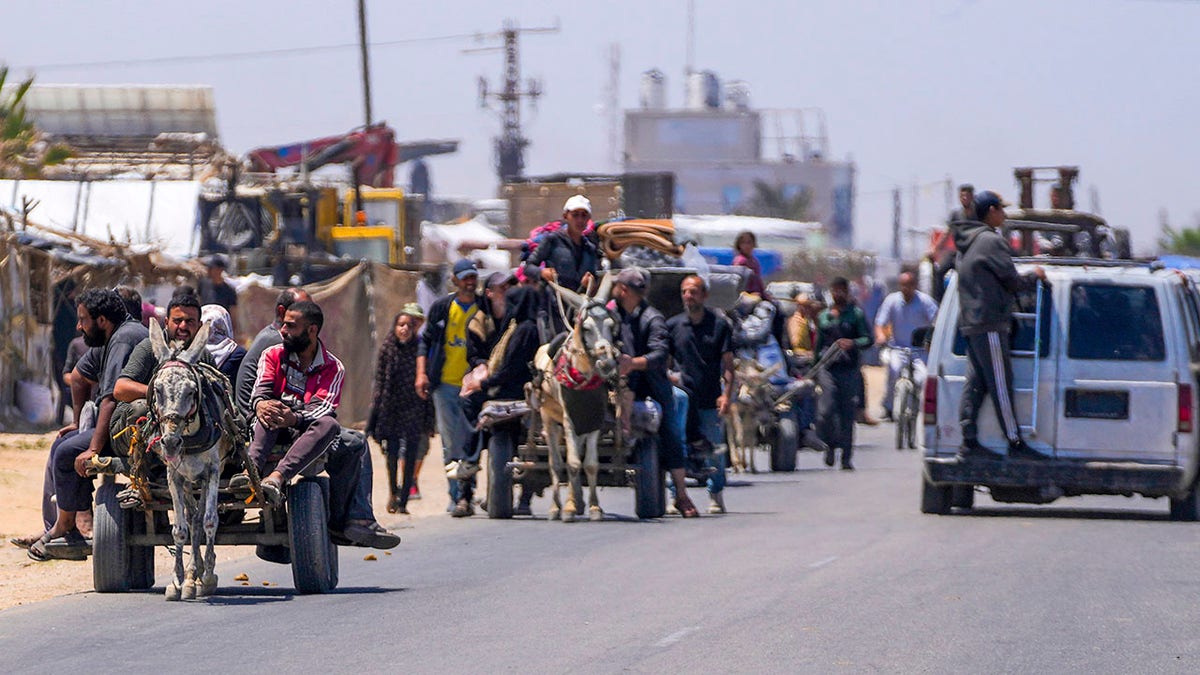
Displaced Palestinians arrive in central Gaza after fleeing from the southern Gazan city of Rafah on May 9. (AP/Abdel Kareem Hana)
Hamas triggered the war with its Oct. 7 attack inside Israel in which Palestinian militants killed some 1,200 people, mostly civilians, and seized some 250 hostages. Hamas still holds some 100 hostages and the remains of around 30 others after most of the rest were released during a cease-fire last year.
Israeli Prime Minister Benjamin Netanyahu has said Israel must take over Rafah to eliminate Hamas’ remaining battalions and achieve “total victory” over the militants, who recently regrouped in other parts of Gaza.
Sunday’s strike came two days after the International Court of Justice ordered Israel to end its military offensive in Rafah, where more than half of Gaza’s population sought shelter before Israel’s incursion this month. Tens of thousands of people remain in the area while many others have fled.
The Associated Press contributed to this report.
World
Lithuania’s Gitanas Nauseda declares victory in presidential election
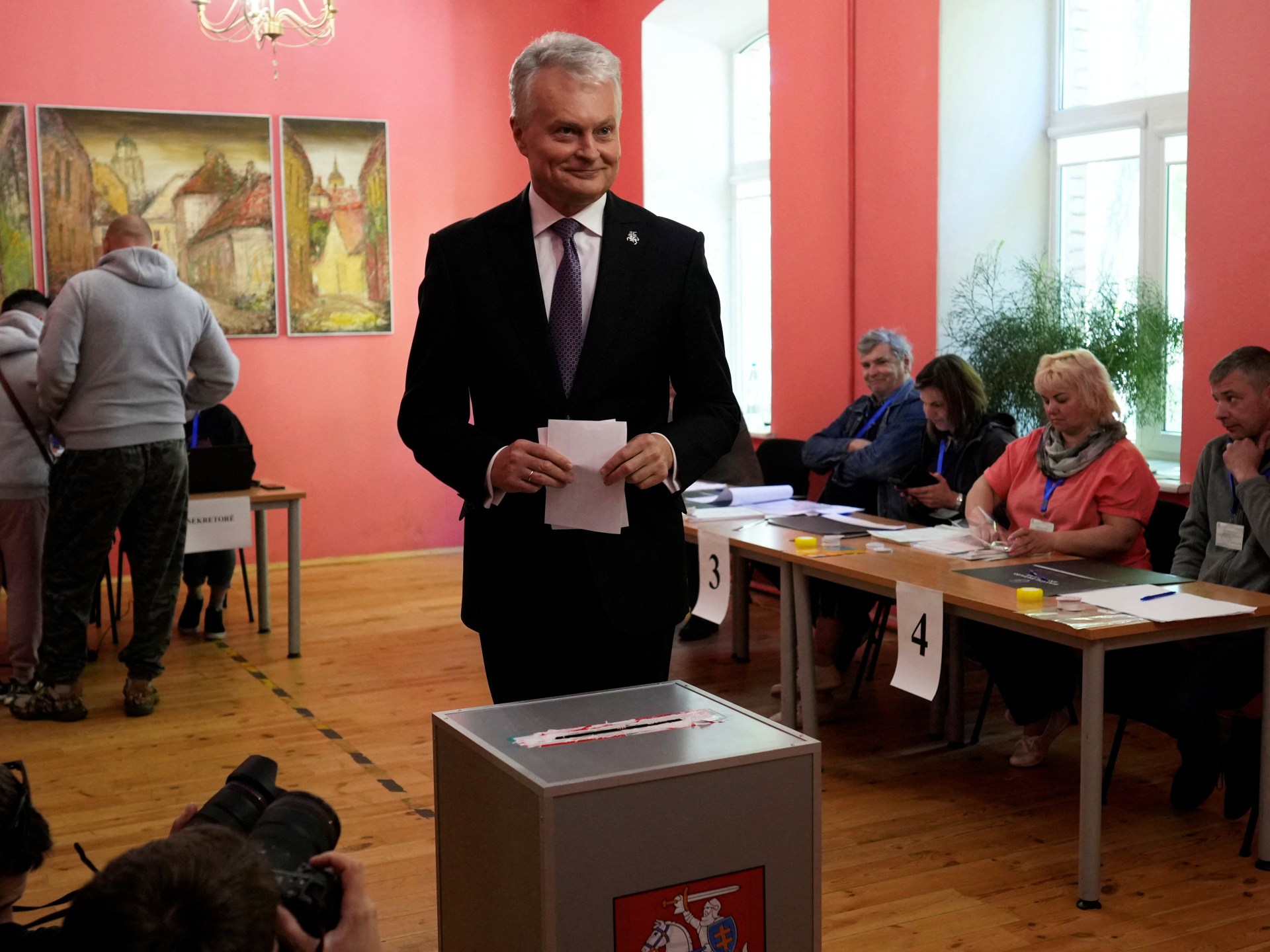
Prime Minister Ingrida Simonyte conceded defeat in the final round of the Baltic nation’s presidential election.
Lithuania’s President Gitanas Nauseda has declared victory in the final round of the Baltic nation’s presidential election, as partial results showed him far ahead in the two-way race against Prime Minister Ingrida Simonyte.
Ballots from nearly 90 percent of polling stations on Sunday showed Nauseda, 60, winning roughly three-quarters of the vote, followed by Simonyte, 49, from the ruling centre-right Homeland Union party.
Simonyte conceded defeat in comments to reporters and congratulated Nauseda.
This is the second time Nauseda and Simonyte have competed in a presidential run-off election. In 2019, Nauseda beat Simonyte with 66 percent of the vote.
As president, Nauseda has a semi-executive role, which includes heading the armed forces, chairing the defence and national security policy body and representing the country at NATO and European Union summits.
The former senior economist with the Swedish banking group SEB, who is not affiliated with any party, won the first round of the election on May 12 with 44 percent of the votes, short of the 50 percent he needed for an outright victory.
Simonyte was the only woman out of eight candidates in the first round and came second with 20 percent.
Both Nauseda and Simonyte support increasing defence spending to at least 3 percent of Lithuania’s gross domestic product, from the 2.75 percent planned for this year, in the wake of Russia’s 2022 invasion of Ukraine.
Like other Baltic nations, Lithuania worries it could be Moscow’s next target. Russia’s President Vladimir Putin has said he has no intention of attacking any NATO countries.
The uneasy relationship between Nauseda and Simonyte has also caught the limelight in foreign policy debates, most notably on Lithuania’s relations with China.
Bilateral ties turned tense in 2021, when Vilnius allowed Taiwan to open a de facto embassy under the island’s name, a departure from the common diplomatic practice of using the name of the capital, Taipei, to avoid angering Beijing.
China, which considers self-ruled Taiwan a part of its territory, downgraded diplomatic relations with Vilnius and blocked its exports, leading some Lithuanian politicians to urge a restoration of relations for the sake of the economy.
-

 Movie Reviews1 week ago
Movie Reviews1 week agoIs Coppola’s $120M ‘Megalopolis’ ‘bafflingly shallow’ or ‘remarkably sincere’? Critics can’t tell
-

 Crypto1 week ago
Crypto1 week agoVoice of Web3 by Coingape : Showcasing India’s Cryptocurrency Potential
-

 Politics1 week ago
Politics1 week agoTrump predicts 'jacked up' Biden at upcoming debates, blasts Bidenomics in battleground speech
-

 News1 week ago
News1 week agoA bloody nose, a last hurrah for friends, and more prom memories you shared with us
-
/cdn.vox-cdn.com/uploads/chorus_asset/file/24038601/acastro_STK109_microsoft_02.jpg)
/cdn.vox-cdn.com/uploads/chorus_asset/file/24038601/acastro_STK109_microsoft_02.jpg) Technology1 week ago
Technology1 week agoMicrosoft’s Surface AI event: news, rumors, and lots of Qualcomm laptops
-

 News1 week ago
News1 week agoVideo: A Student Protester Facing Disciplinary Action Has ‘No Regrets’
-

 World7 days ago
World7 days agoPanic in Bishkek: Why were Pakistani students attacked in Kyrgyzstan?
-
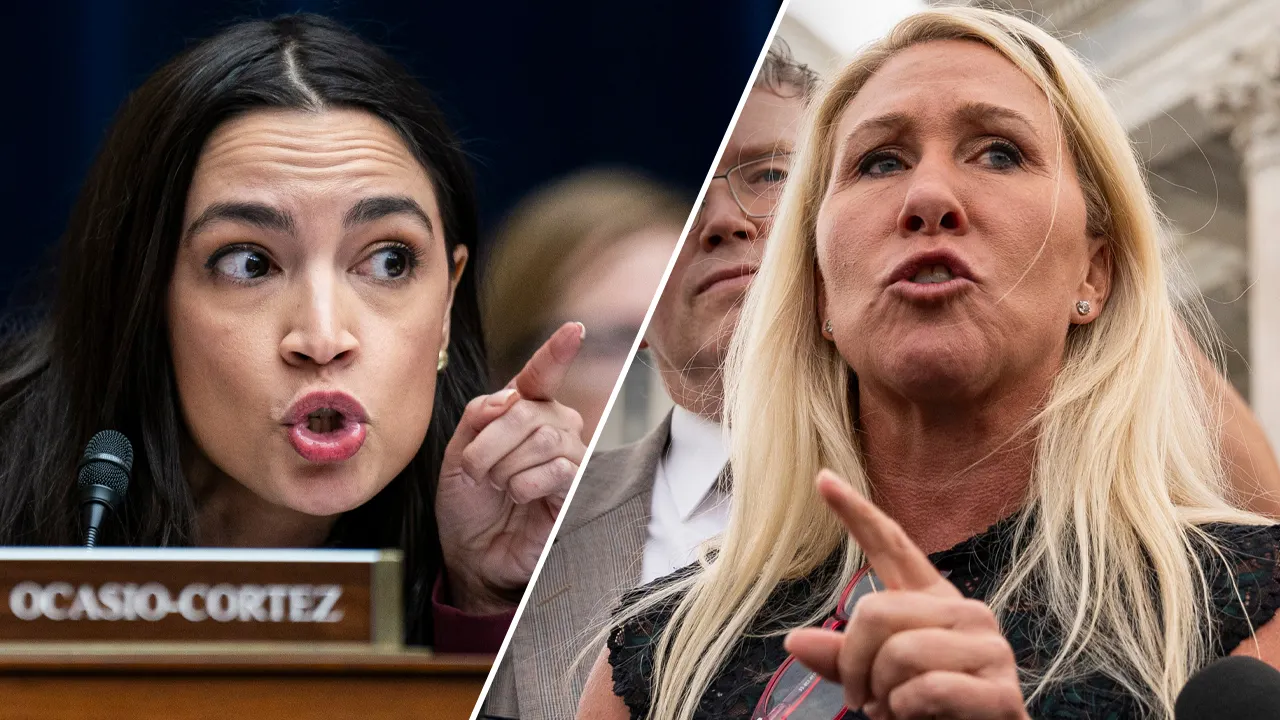
 Politics1 week ago
Politics1 week agoAOC, 'baby girl' Marjorie Taylor Greene trade barbs in fiery Garland hearing: 'Are your feelings hurt?'


